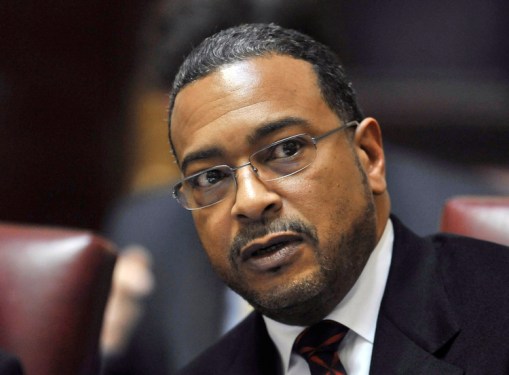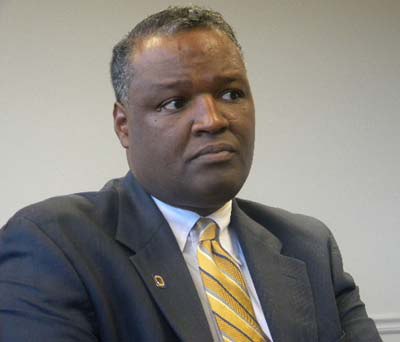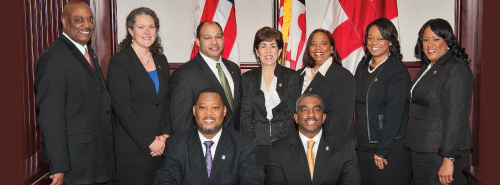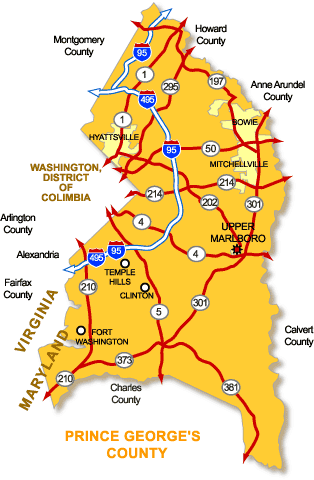One blogger likened the buzz around Prince George’s County Executive Rushern L. Baker III’s proposed property tax increases to “a plague of locusts.”
A frequent yet anonymous county political commentator dubbed the budget plan a “tax rip-off.”
And, of course, Change.org has a 300-signature petition going against the administration’s request to the County Council to raise revenue to pay for a $1.9 billion education budget.
The council’s vote is not until June, but the rancor surrounding Baker’s bold proposal is inciting furious debate in the blogosphere, community discussion boards and e-mail listservs where many Prince George’s County residents digest news about their government. The online posts are written by community activists and can be influential.
In southern Prince George’s County, for example, the Indian Head Highway Area Action Council maintains a large e-mail list that is distributed to 25 homeowner’s associations and civic groups from Accokeek to Forest Heights and beyond.
President Archie O’Neil wrote a policy statement for the group questioning the school system’s past expenditures and assertions by elected officials that more money will translate into better schools.
“There is a great possibility of having diminishing returns, if more funding is added to the education budget. There are socioeconomic issues we must address prior to increasing our school budget…Higher taxes will destroy Prince George’s County…”
That message reached Chris Bullock, president of the Simmons Acres Homeowner’s Association in Accokeek, who said the subject comes up often at their meetings: “I think people feel taxed-out,” he said. “We are all a little leery.”
Capitol Heights resident and attorney Bradley Heard has dedicated two recent posts on his blog the “Prince George’s Urbanist” to what opponents have described as Baker’s “brazen and unlawful attempt to circumvent voter-imposed property tax cap known as TRIM.” A third is coming.
The 1970s-era tax cap has been modified a few times in its history, but the core principle persists: Property taxes cannot be raised without voter approval. Detractors like Heard and Hyattsville activist Judy Robinson maintain any tax increases should be approved by voters — as outlined in the county charter — but a 2012 state law, S.B. 848, appears to have given the County Council the revenue-raising authority. Here’s what the state Attorney General’s Office had to say:
“The Office of Attorney General has consistently advised that the referendum requirement and other charter limitations on the power of a county council to impose taxes does not apply when the council is acting pursuant to an authorization in a public general law enacted by the General Assembly.” (emphasis added)
In other words, state law supersedes county law.
But the legal view is separate and apart from what count taxpayers are saying, often angrily, during public meetings being held in each district. Council member Mary Lehman (D-Laurel) had to interrupt a recent Q&A event at Martin Luther King Jr. Middle School in Beltstville to demand civility after some residents began to batter administration officials with accusations. Many residents are echoing Heard’s arguments about public distrust, the burden of struggling homeowners and the wisdom of “dramatically increasing” property taxes in a county where many are still recovering from the housing foreclosure crisis and the recession. As he wrote in one post:
“Baker is betting that his ‘let’s educate our children’ argument will eventually persuade a wary public and council to support his move. But raising taxes to increase school funding isn’t the right move for Prince George’s County at this juncture…While there may well be occasions when the county may need to raise taxes for the greater good, even if it risks alienating some people, now is not one of those times.“
Prince George’s County’s grass-roots activists are few but vocal. Their campaigns — over issues such as taxes and term limits — are consistently underfunded. But they have a history of winning, by convincing the electorate they are on the right side. Baker knows it. He was on the losing end of the most recent battle — over term limits.
But being a lawyer by training, the county executive said he is ready for this next debate and is convinced that residents with the right information will understand the urgency of his proposal. He is trying to head off the opposition’s contentions and persuade his constituents that “15 cents” (the proposed property tax increase from $0.96 to $1.11 per $100 of assessed value) is “not a tax increase” but “an investment,” through a series of live roundtable discussions. Schools chief executive Kevin Maxwell will be with him, making the rounds to explain the specifics of the education spending strategy to skeptics.
Baker made the pitch to a roomful of business and government leaders in his “state of the economy” speech on Thursday:
“My friends, it’s time for us to put up or forever hold our peace. We either want the best schools or we don’t. It is just that simple! This is our moment … Now is the time.“













